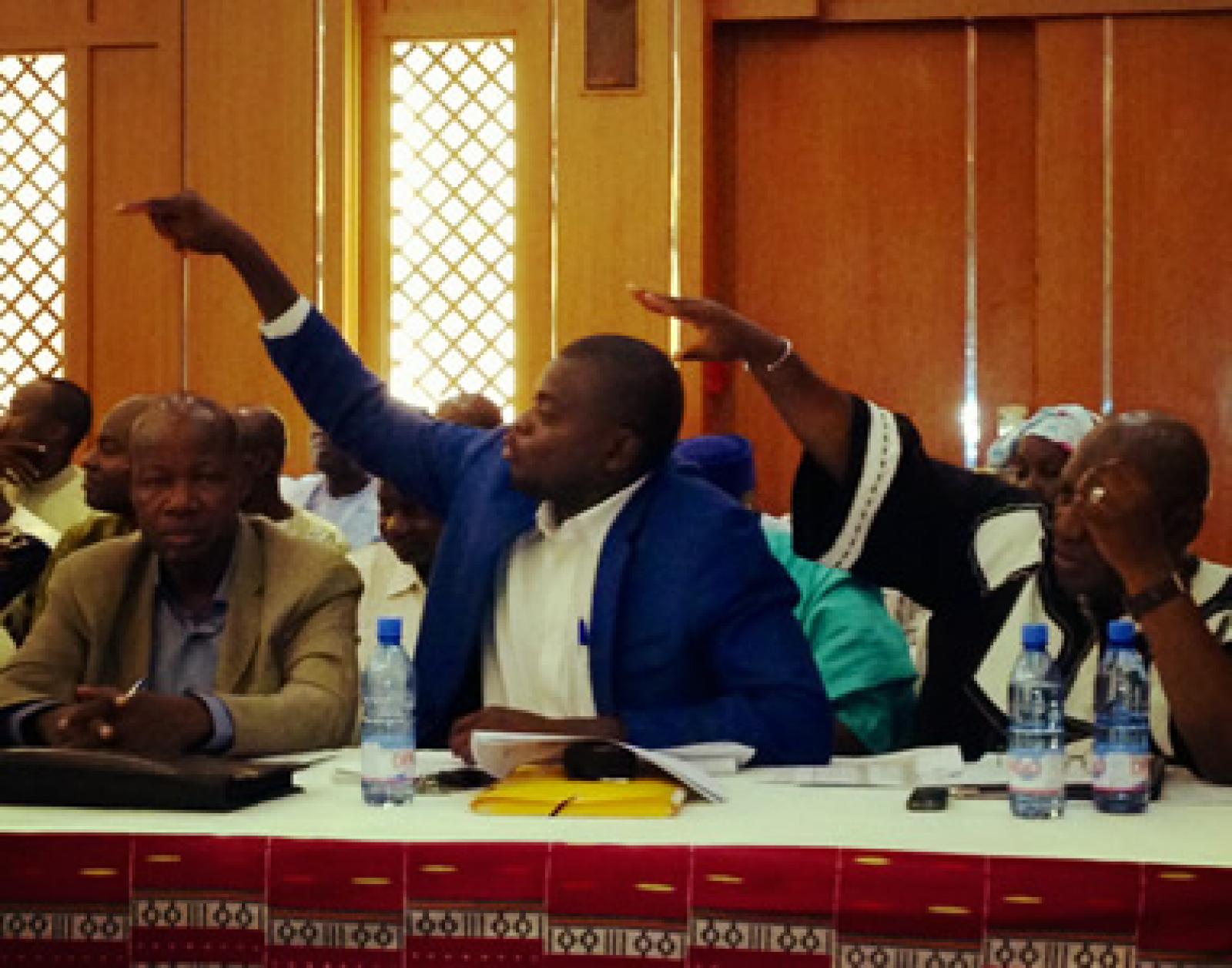
SHARE
Presidential elections are scheduled for July in Mali, and are viewed by Malians as a major step in the country’s recovery from a coup that toppled the government in March 2012 and subsequent armed incursions led by Islamist rebels. Although major cities such as Timbuktu and Gao have been reconquered by Malian and allied forces, parts of the north are still controlled by rebel fighters. Approximately 400,000 Malians have fled the area.
The governance and security crises halted political activities and inhibited communication among political parties, civil society organizations and governing institutions about how to return to democratic rule. But a recent retreat, co-organized by NDI and the International Foundation for Electoral Systems (IFES), convened more than 100 Malian officials, political party and civil society leaders, representatives of security forces and the media to discuss ways to ensure that the upcoming elections are peaceful, inclusive and reflect the will of the people. The retreat was held in Bamako, Mali’s capital, April 25-26.
Together, Mali’s top leaders discussed components of the electoral process, the responsibility of political parties to encourage peaceful elections, the role of civil society and media in enhancing electoral transparency and oversight, removing barriers to women’s participation as candidates and voters, and how to resolve election-related disputes. The retreat provided neutral space for in-depth discussions among participants who had been deprived of the opportunity to talk politics or roles in the electoral process for over a year.
Discussions were frank and lively. For example, Mamadou Diamoutani, president of Mali’s Independent Electoral Commission (Commission Electorale Nationale Independente - CENI), that has supervisory powers over elections administration, openly questioned the feasibility of holding elections by July, and General Siaka Sangaré of the General Office on Elections (Delegation Generale des Elections - DGE) also worried about the July timeframe, citing the lack of data needed to update the voter registry.
A spokesperson for the civil society organization Support for Mali’s Electoral Process (Appui au Processus Electoral au Mali – APEM) discussed the group’s plans to recruit, train, and deploy nonpartisan citizen observers across the country to monitor activities in the pre-election period and on election day as part of citizen-led efforts to boost electoral transparency and confidence in the results.
Chris Fomunyoh, NDI director for Central and West Africa programs, spoke about mechanisms to facilitate resolution of election-related disputes and recommended that Malian political parties adhere to a code of conduct and seek redress from the courts of law, should they have grievances with the electoral process. Charles Djrekpo, NDI regional consultant, highlighted examples from several West African countries that have successfully resolved election-related disputes without resorting to violence, such as Ghana and Senegal, but he also noted that there were less successful examples, such as Cote d’Ivoire, that Malians did not have to emulate.
The retreat closed with participants agreeing to take actions that would foster a broad and inclusive process leading up to elections. They also called for extensive civic education and amendments to the electoral law that would make it easier to vote for internally displaced persons and refugees. If adopted and pursued, these recommendations would pave the way for more inclusive, credible and transparent polls.
The retreat was funded by the U.S. Agency for International Development (USAID).
Read more:
- NDI's Chris Fomunyoh testifies on Mali before U.S. SEnate Committee on Foreign Relations»
- Women leaders look for solutions to challenges facing Malians»
- West Africa election observers join together to promote credible elections»
Published May 17, 2013


